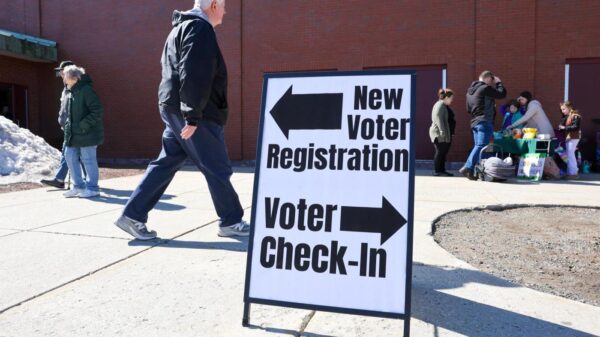A Manhattan federal judge has overturned an attempt by Secretary of Homeland Security Kristi Noem to withhold nearly $34 million in anti-terror grants designated for the Metropolitan Transportation Authority (MTA). This decision responds to the Trump administration’s effort to punish New York City for its sanctuary policies. Judge Lewis Kaplan ruled that the Department of Homeland Security (DHS) lacked the authority to impose immigration-related conditions on the disbursement of these funds.
In his ruling, Judge Kaplan emphasized that “Congress prohibited DHS from imposing such terms by requiring the selection of grant recipients to be ‘based solely on risk.’” He pointed out that New York City, being a primary target for terrorists, warrants the allocation of funds based on its risk profile. This ruling comes as a significant blow to the administration, which has repeatedly attempted to leverage federal funding to enforce its immigration agenda.
The judge’s comments highlighted the broader implications of this ruling, noting that the DHS’s actions violate several legal principles. The administration’s strategy to condition federal funds on state compliance with federal policies has faced legal challenges before, particularly regarding the separation of powers and the appropriate distribution of federal grants. This ruling serves as a reminder of the ongoing tension between federal authority and state autonomy, particularly in matters of immigration enforcement.
New York City has long been aware of the vulnerabilities that come with being a potential target for acts of terrorism. The subway system, in particular, presents a significant soft target, making the need for adequate funding for anti-terrorism measures all the more critical. The judge’s ruling not only restores vital funding for the MTA but also reinforces the principle that federal funds should be allocated based on public safety needs rather than political agendas.
This is not the first time the Trump administration has attempted to cut funding for New York. Previously, the former president sought to eliminate $187 million in separate grant funding for the state. Following public outcry and political pressure, he ultimately backed down. This trend raises concerns about the motivations behind such funding cuts, suggesting a lack of a systematic approach and reliance on personal decisions made by a select few advisors, including Stephen Miller and Russ Vought.
Judge Kaplan’s ruling may not deter future attempts by the administration to use federal funding as a tool for political leverage. The ongoing struggle over federal funds highlights the delicate balance between local governance and federal authority, particularly in politically charged environments. Each federal dollar allocated in New York could become a point of contention as the administration continues to pursue its agenda.
The implications of this ruling extend beyond New York. It raises questions about the legality of the federal government’s approach to funding across various sectors, including safety, transportation, education, and health. Without tangible consequences for officials who engage in unlawful actions, there is a risk of repeated attempts to manipulate funding for political purposes. The need for accountability and adherence to legal standards remains crucial in maintaining the integrity of federal funding processes.
As this situation unfolds, it becomes increasingly important for the judiciary to act as a check on executive power, ensuring that federal funds are utilized appropriately and in service of public safety rather than political maneuvering.







































































